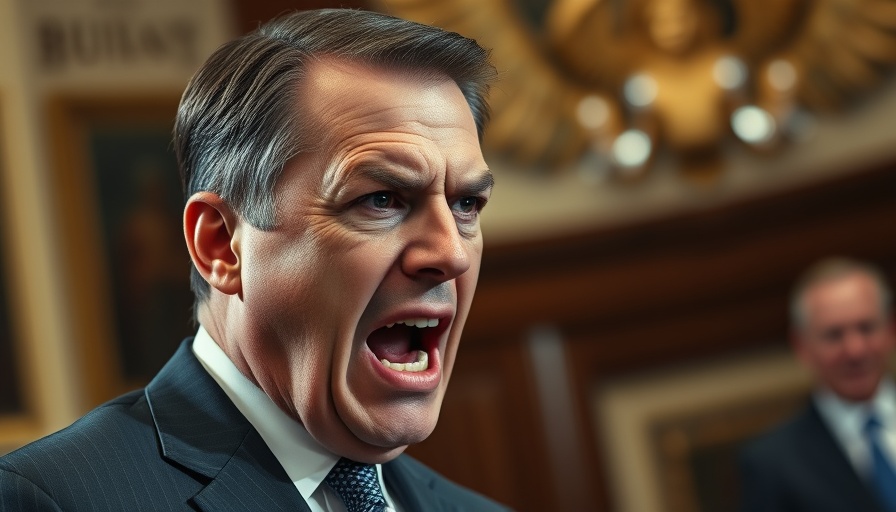
Trump's Tariff Threats: A Catalyst for Lula's Revival
As Brazil approaches its presidential election, the country's political landscape has shifted dramatically thanks to the unexpected intervention of former President Donald Trump. Once considered a fading political force, President Luiz Inácio Lula da Silva has experienced a resurgence in popularity, fueled by Trump’s threats to impose a staggering 50 percent tariff on Brazilian exports. This bold political move has not only rekindled support for Lula but has also reaffirmed his status as a formidable leader.
The Unexpected Boost: Lula's Reaction to Tariff Threats
Initially, Lula was facing a tough election with waning approval ratings, as 57 percent of Brazilians expressed a desire for new leadership. Yet, Trump's tariff threats acted as a catalyst for Lula’s revival. Responding swiftly, Lula made it clear that Brazil would not submit to external pressure. “Brazil is a sovereign nation with independent institutions and will not accept any form of tutelage,” he asserted, a stance that has resonated deeply with the electorate. This reaction not only demonstrated Lula's leadership qualities but also garnered significant media attention, resulting in increased approval ratings among the population.
A Snapshot of Public Sentiment: Lula's Rising Approval Ratings
In a rapidly evolving political climate, Lula's approval ratings surged to levels not seen in months, ranging from 43 to 50 percent according to recent polls. Experts suggest that this 3 to 5 percentage point increase is attributable to not just Lula’s reaction to Trump’s threats but also the broader backdrop of rising domestic challenges, such as food prices and inflation. Political analyst Camila Rocha remarked, “This strengthens him a lot,” referring to the anti-Trump sentiment that has energized Lula’s base amid external pressures.
Understanding the Anti-Trump Effect
The phenomenon of the “anti-Trump bump” is not exclusive to Brazil; it has reverberated across continents, shaping elections and bolstering political figures who align themselves against Trump’s controversial policies. In Brazil, this effect manifests in an electorate that increasingly views Lula, facing challenges of his own, as a defender of national interests against an overreaching foreign leader. Countries like Canada and Australia have experienced similar boosts for leaders asserting themselves against Trump’s rhetoric.
The Stakes Ahead: Bolsonaro's Legal Trouble
The backdrop to this political drama is the tumultuous situation surrounding Jair Bolsonaro, Lula’s predecessor, who faces serious criminal charges for attempting to overturn the results of the 2022 election. With Bolsonaro’s trial set to begin shortly after the proposed tariffs take effect on August 1, the Brazilian political atmosphere is charged with tension and anticipation. Lula's firm stance against the tariffs also emphasizes a broader narrative of sovereignty and respect for Brazil’s democratic processes.
What This Means for Brazil’s Future
The coming months will be crucial for both Lula and Brazil. The tariffs, if imposed, could have serious economic implications, potentially impacting jobs and trade. On one hand, Lula’s assertive leadership against Trump could cement his place in Brazilian politics, allowing him to advocate for a more independent and globally savvy Brazil. Conversely, should the tariffs lead to economic strain, it could challenge Lula’s authority and threaten his impending election.
Conclusion: The Importance of Understanding Political Dynamics
The interplay of international relations and domestic politics is fascinating. As Brazil navigates through this turbulent time, understanding these dynamics will be critical for both political analysts and the Brazilian electorate. President Lula’s resurgence, ignited by Trump’s tariff threats, demonstrates how global events can shift local political tides and the significance of strong leadership in navigating such challenges.
 Add Row
Add Row  Add
Add 




Write A Comment